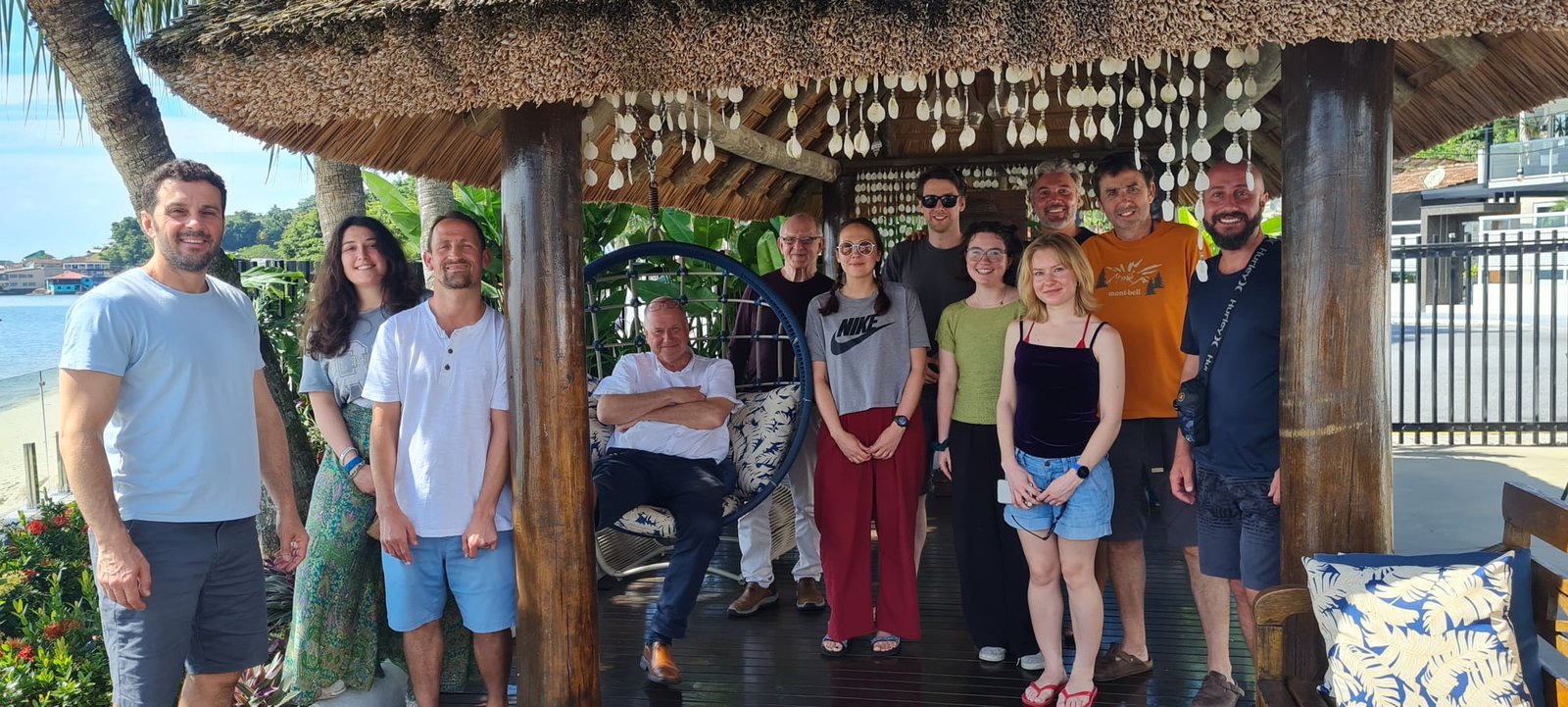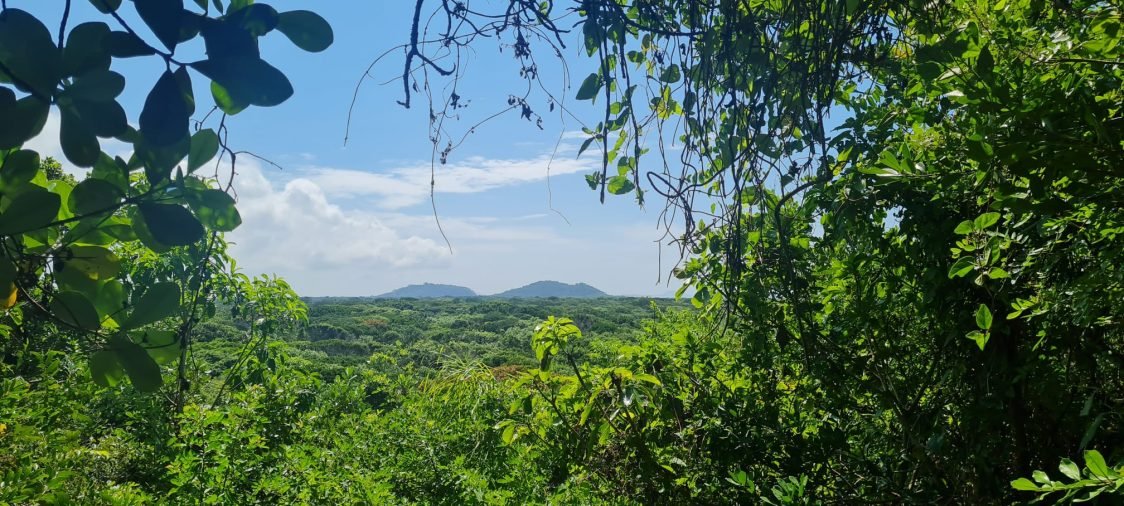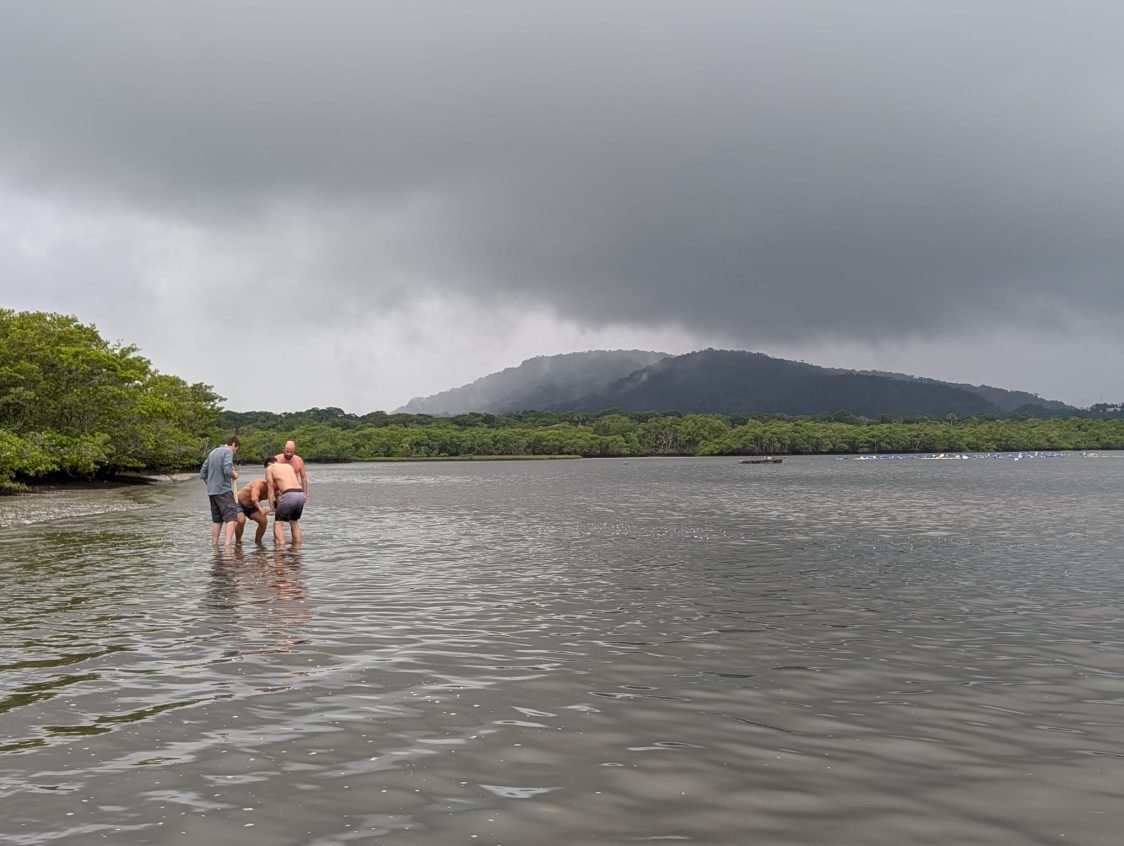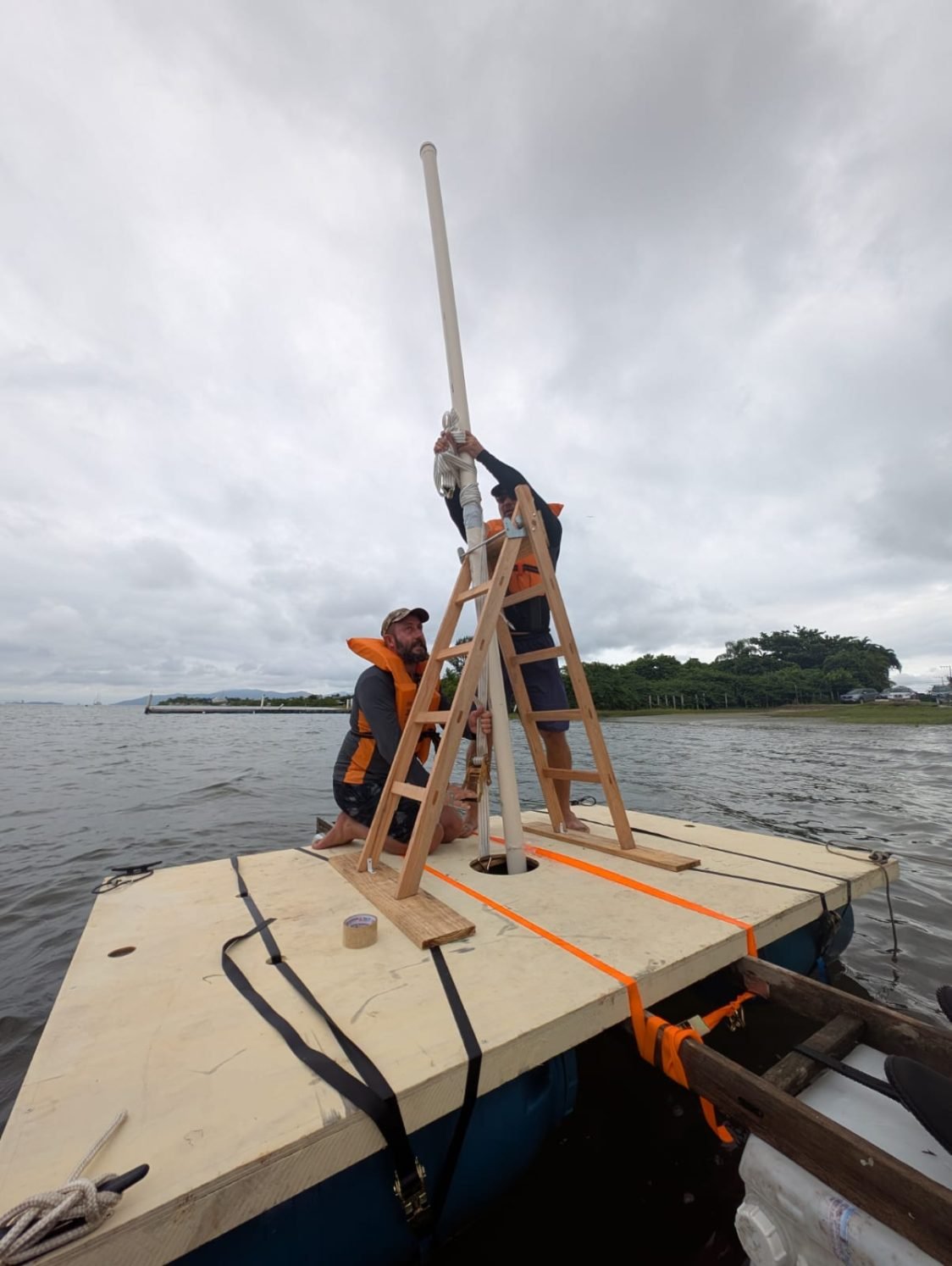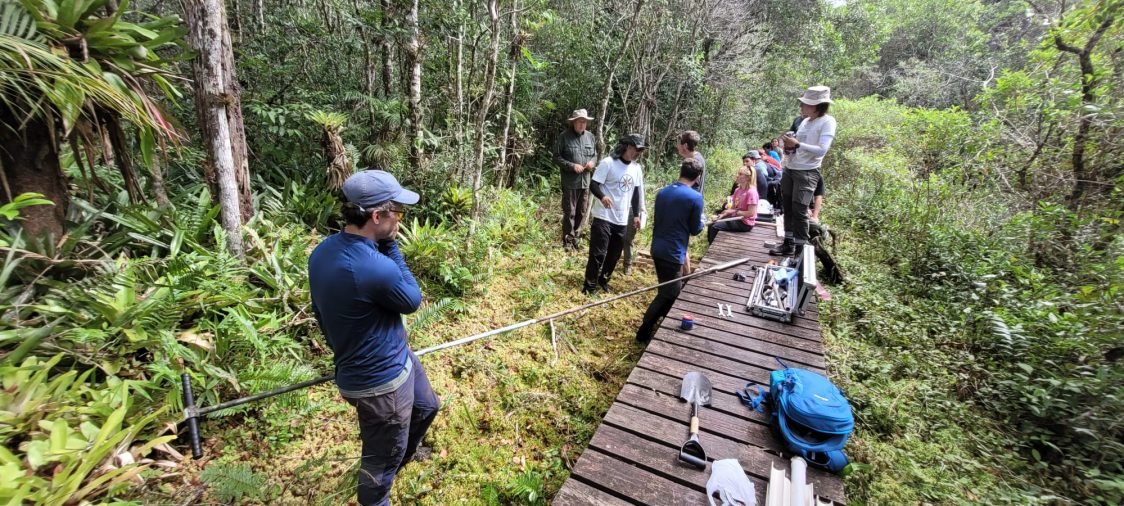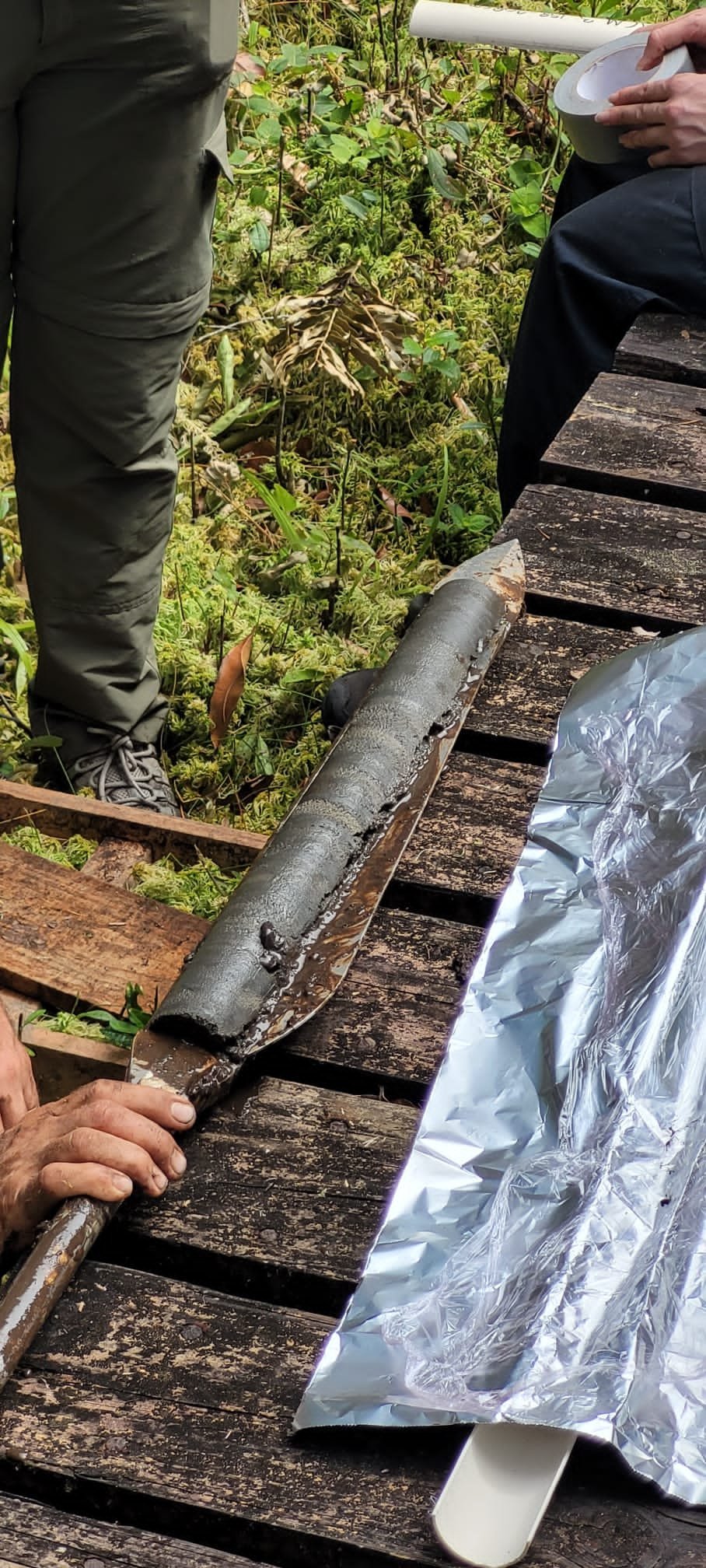Andre Colonese brought the TRADITION and SeaChange projects to southern Brazil, where an international team of archaeologists, marine biologists, and geologists is sampling lagoonal and terrestrial sediments to investigate changes in coastal environmental conditions over the last 6,000 years.
Over the course of two weeks, the team has cored Acarai Lagoon and surrounding swampy areas in Babitonga Bay using multiple approaches. This fieldwork involves researchers from the University of York, University of Exeter, University of Mainz, and the University of Copenhagen. It marks the first time that past climate and environmental records have been studied with such high resolution in this region.
The aim is to explore how – and to what extent – coastal environmental conditions have changed in response to human activity, from pre-colonial times through the historical period and into the modern day.
Babitonga Bay is an ideal place to study long-term human–environment relationships. The area has been continuously occupied for over 10,000 years by diverse human groups and was later colonized by Europeans beginning in the 16th century. In the last century, the region has undergone significant environmental changes due to urbanization, industrialization, and infrastructure development.
